第26章 BOOK III(6)
Ath.Let us,then,in the first place declare and affirm that the citizen who does not know these things ought never to have any kind of authority entrusted to him:he must be stigmatized as ignorant,even though he be versed in calculation and skilled in all sorts of accomplishments,and feats of mental dexterity;and the opposite are to be called wise,even although,in the words of the proverb,they know neither how to read nor how to swim;and to them,as to men of sense,authority is to be committed.For,O my friends,how can there be the least shadow of wisdom when there is no harmony?There is none;but the noblest and greatest of harmonies may be truly said to be the greatest wisdom;and of this he is a partaker who lives according to reason;whereas he who is devoid of reason is the destroyer of his house and the very opposite of a saviour of the state:he is utterly ignorant of political wisdom.Let this,then,as I was saying,be laid down by us.
Cle.Let it be so laid down.
Ath.I suppose that there must be rulers and subjects in states?
Cle.Certainly.
Ath.And what are the principles on which men rule and obey in cities,whether great or small;and similarly in families?What are they,and how many in number?Is there not one claim of authority which is always just-that of fathers and mothers and in general of progenitors to rule over their offspring?
Cle.There is.
Ath.Next follows the principle that the noble should rule over the ignoble;and,thirdly,that the elder should rule and the younger obey?
Cle.To be sure.
Ath.And,fourthly,that slaves should be ruled,and their masters rule?
Cle.Of course.
Ath.Fifthly,if I am not mistaken,comes the principle that the stronger shall rule,and the weaker be ruled?
Cle.That is a rule not to be disobeyed.
Ath.Yes,and a rule which prevails very widely among all creatures,and is according to nature,as the Theban poet Pindar once said;and the sixth principle,and the greatest of all,is,that the wise should lead and command,and the ignorant follow and obey;and yet,O thou most wise Pindar,as I should reply him,this surely is not contrary to nature,but according to nature,being the rule of law over willing subjects,and not a rule of compulsion.
Cle.Most true.
Ath.There is a seventh kind of rule which is awarded by lot,and is dear to the Gods and a token of good fortune:he on whom the lot falls is a ruler,and he who fails in obtaining the lot goes away and is the subject;and this we affirm to be quite just.
Cle.Certainly.
Ath."Then now,"as we say playfully to any of those who lightly undertake the making of laws,"you see,legislator,the principles of government,how many they are,and that they are naturally opposed to each other.There we have discovered a fountain-head of seditions,to which you must attend.And,first,we will ask you to consider with us,how and in what respect the kings of Argos and Messene violated these our maxims,and ruined themselves and the great and famous Hellenic power of the olden time.Was it because they did not know how wisely Hesiod spoke when he said that the half is often more than the whole?His meaning was,that when to take the whole would be dangerous,and to take the half would be the safe and moderate course,then the moderate or better was more than the immoderate or worse."Cle.Very true.
Ath.And may we suppose this immoderate spirit to be more fatal when found among kings than when among peoples?
Cle.The probability is that ignorance will be a disorder especially prevalent among kings,because they lead a proud and luxurious life.
Ath.Is it not palpable that the chief aim of the kings of that time was to get the better of the established laws,and that they were not in harmony with the principles which they had agreed to observe by word and oath?This want of harmony may have had the appearance of wisdom,but was really,as we assert,the greatest ignorance,and utterly overthrew the whole empire by dissonance and harsh discord.
Cle.Very likely.
Ath.Good;and what measures ought the legislator to have then taken in order to avert this calamity?Truly there is no great wisdom in knowing,and no great difficulty in telling,after the evil has happened;but to have foreseen the remedy at the time would have taken a much wiser head than ours.
Meg.What do you mean?
Ath.Any one who looks at what has occurred with you Lacedaemonians,Megillus,may easily know and may easily say what ought to have been done at that time.
Meg.Speak a little more clearly.
Ath.Nothing can be clearer than the observation which I am about to make.
Meg.What is it?
Ath.That if any one gives too great a power to anything,too large a sail to a vessel,too much food to the body,too much authority to the mind,and does not observe the mean,everything is overthrown,and,in the wantonness of excess runs in the one case to disorders,and in the other to injustice,which is the child of excess.I mean to say,my dear friends,that there is no soul of man,young and irresponsible,who will be able to sustain the temptation of arbitrary power-no one who will not,under such circumstances,become filled with folly,that worst of diseases,and be hated by his nearest and dearest friends:when this happens,his kingdom is undermined,and all his power vanishes from him.And great legislators who know the mean should take heed of the danger.As far as we can guess at this distance of time,what happened was as follows:-Meg.What?